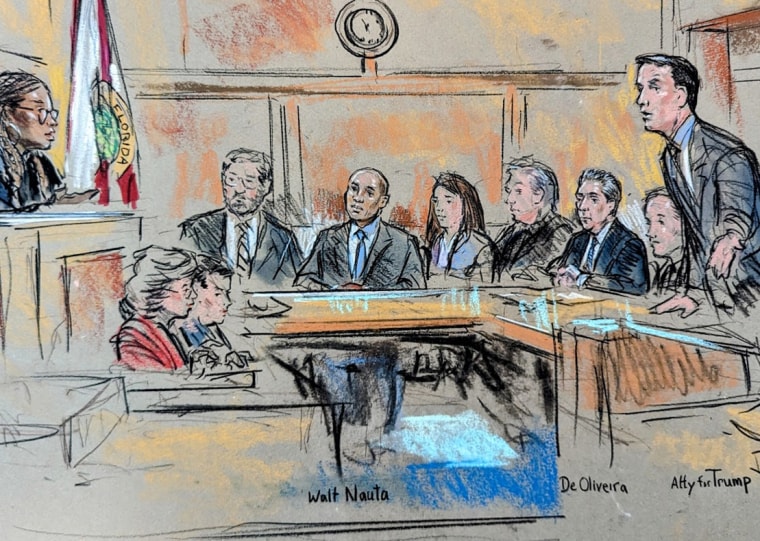The differences between Donald Trump’s Washington and Florida prosecutions are growing more apparent by the day. We just got the latest reminder of that on Thursday, when Trump’s newest classified documents co-defendant, Carlos De Oliveira, wasn’t arraigned because he still didn’t have a Florida lawyer properly admitted to practice in the district in which they’re charged.
Recall, this latest delay comes after De Oliveira didn’t have local counsel admitted for his first court appearance last month, which pushed his arraignment to Thursday. Now, he has apparently identified a Florida lawyer but that lawyer reportedly didn’t have the proper paperwork submitted, so De Oliveira’s arraignment got pushed again, to Aug. 15. He wanted to push it back even further, to Aug. 25, but the magistrate judge apparently didn't want more delay.
If delay due to not having local counsel admitted sounds familiar, that’s because it already happened in this case with Trump’s other co-defendant, Walt Nauta, who eventually secured local counsel.
To be sure, the extent to which these delays from Nauta and De Oliveira wind up truly affecting the case — where the trial is currently set for May 2024 — remains to be seen. But the false starts from Trump’s co-defendants serve as a reminder of the broader complications from multi-defendant cases generally, as compared to Trump’s other federal case in Washington, for 2020 election interference, in which he’s the lone defendant (there are uncharged co-conspirators in that indictment).

And though the Washington case was charged more recently, it may well go to trial first. The judge overseeing it, Tanya Chutkan, ordered the parties to propose trial dates this month, so we may have more detail on that one soon.
Another stark difference, of course, is the judges in the two cases. We were just reminded of that as well when Judge Aileen Cannon issued a strange order earlier this week in the classified documents case.
Specifically, she raised questions about the Justice Department’s continued grand jury investigation following the initial indictment of Trump and Nauta in June, which led to the superseding indictment last month that added new charges against them as well as the new defendant, De Oliveira. Cannon raised the issue in connection with prosecutors flagging a possible conflict of interest for Nauta’s lawyer, Stanley Woodward, due to his representation of potential witnesses against Nauta — thus highlighting another layer to the classified documents case.
So while De Oliveira’s latest delay in itself might not alter the course of the prosecution, it reinforces that this case may be on a different, more winding path than special counsel Jack Smith's other case in Washington.

